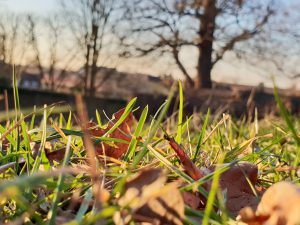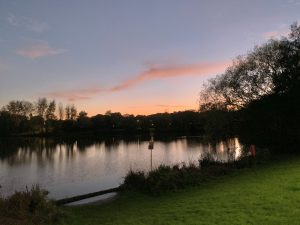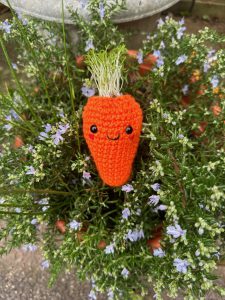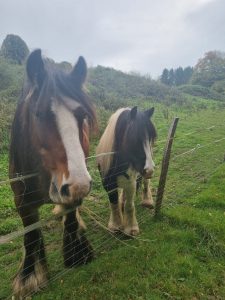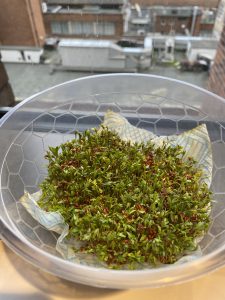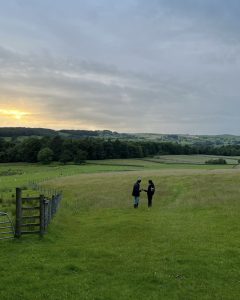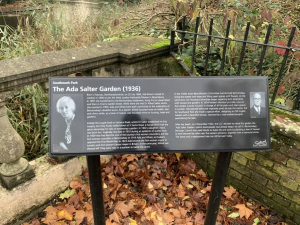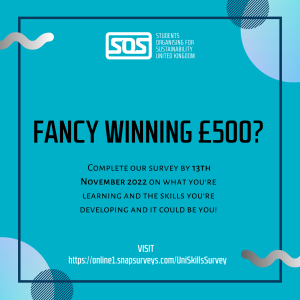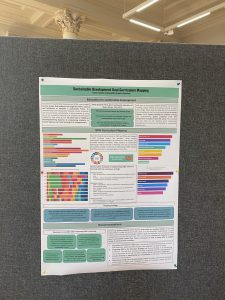Are you interested in all things sustainable and want to make a positive impact whilst at King’s? The King’s Climate & Sustainability team have a range of volunteering opportunities, events and resources to help you learn more about and take collective action on climate and sustainability.
Sign up for the Sustainability newsletter and follow King’s Sustainability on Instagram and Twitter for all updates.
There are also KCLSU student groups dedicated to sustainability such as the Climate Action Society, Eco Soc and the Vegetarian & Vegan Society.
Find out how to get involved below or view all opportunities here.
Learn and boost your CV: Sustainability module and seminar series
The KEATS module on Sustainability & Climate is an open-access and interdisciplinary module covering the biggest topics in sustainability, from climate change and food to sustainable finance and social justice. Fully co-created by a Take Action Team of students, staff and alumni, it is a module that is designed by the King’s community, for the King’s community. The module aims not just to equip you with sustainability knowledge, but to help you develop the agency to take action on the issues that most concern you.
To boost your employability, you can gain a King’s Experience Champion for Change Award upon module completion, which goes on your Higher Education Achievement Report (HEAR) that you receive when you graduate from King’s.
A Sustainability Seminar Series accompanies the module and runs monthly between October and July with seminars from climate justice to sustainable economics.
Register online to keep updated.
Take collective action: King’s Climate Action Network
The King’s Climate Action Network (CAN) is an open forum bringing together more than 400 people from the King’s community who are passionate about climate action. It is a place to foster innovation, brainstorm new ideas and discuss what action King’s needs to take to reach our targets.
By joining the King’s CAN, you will get an opportunity to hear from stakeholders about progress in theme-specific sessions, discuss fresh ideas and get a chance to implement them through the Sustainability Projects Fund.
Find out more and join the King’s CAN.
Make a difference: Volunteer for sustainability
Volunteering is a great way to give back to the community and the King’s Climate & Sustainability team offer exciting opportunities to help drive sustainability and gain valuable employability skills.
You can become an ambassador raising sustainability awareness across King’s, a Sustainability Champions Assistant supporting staff teams to make their work environments more sustainable, and much more.
Check out all opportunities on King’s Volunteering platform (look for: King’s Climate & Sustainability)
Learn & take action: King’s Climate & Sustainability Month
King’s Climate & Sustainability Month takes place every year in February, offering you an opportunity to learn more about sustainability topics, collaborate and connect with others from across King’s and take action on the climate crisis. The month includes an inter-university London Student Sustainability Conference with an opportunity to showcase your sustainability project or research to a London-wide audience.
Interested in organising an event? That is possible! King’s Climate & Sustainability Month includes exciting social and educational events organised by people from across the King’s community focused on one or more of the Sustainable Development Goals (SDGs).
Subscribe to the newsletter to keep updated.
Discover: Spotlight on Sustainability podcast
The King’s Spotlight on Sustainability podcast aims to draw attention to sustainability at King’s and beyond. The goal is to get you thinking about some of the issues and challenges we face regarding climate change and the natural world by highlighting the excellent work on sustainability happening at King’s and on local, national and global levels.
Climate and sustainability ambitions and progress
King’s Climate & Sustainability Action Plan was developed in consultation with students, staff and alumni members of the King’s CAN and went live in February 2023. The plan sets new targets across 13 key impact areas, including at least a 25% reduction in carbon emissions by 2025 and a 50% reduction by 2030 across energy use, business travel, our supply chain, commuting and waste. The plan includes a 2030 net zero target and prioritises the absolute reduction of carbon emissions over offsetting and carbon removals.
Our annual Environmental Sustainability Reports summarise the efforts made by the entire King’s community to make the university more sustainable: from managing our estates and providing sustainable food to engaging with our local communities and driving Education for Sustainability. Have a look – we hope it inspires you to take action on climate and sustainability, whatever your role within or beyond King’s!
We’d love to hear from you!
If you want to set up your own sustainability project, you have any ideas or feedback to share, or you would like us to promote any of your initiatives, please get in touch with the team: sustainability@kcl.ac.uk

